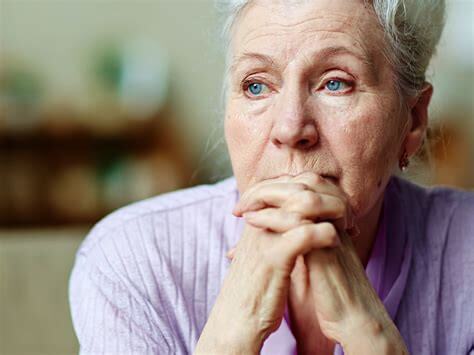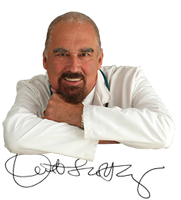“Spousally bereaved”; what the heck is that? Read on and let’s take a look together.
Some of you know I’ve been in Europe for much of the summer. With just a few days to go before my flight back, we are at Vivien’s Mum’s former home. Her Mum passed away just three months ago and her (Mum’s) “presence” is causing Viv to grieve heavily.
Oddly, it has also awakened the sense of loss with her father, who passed years before. It got me thinking about grief and bereavement.
It’s something we all have to face but it is important to know that the loss of someone you love dearly has a tremendous negative impact on health. Whereas I strongly resist the psychiatric profession’s attempts to have bereavement classified as a disease (so they can sell more and more antidepressant drugs, of course) there is no question that grief can kill.
People really do “die of a broken heart”.

You’ve probably heard of the takotsubo syndrome: it’s Japanese for an ailing heart caused by loss. Whereas it is reversible, it certainly denotes a considerable degree of temporary heart damage, including myopathy (muscle damage) and enlargement of the left ventricle (main pumping chamber). Hence one of its other names: apical ballooning syndrome.1
Indeed that’s the origin of the term takotsubo, which means “lobster pot” in Japanese; a reference to the distortion of the heart’s chambers.
Gender Basis
According to Harvard University’s website, more than 90% of reported takotsubo cases are in women ages 58 to 75.2 Sometimes the patient may have sudden chest pain or think they’re having a heart attack. In a way they are, but takotsubo affects only part of the heart, temporarily disrupting your heart’s normal pumping function. The rest of the heart continues to function normally or may even have more forceful contractions.
Other symptoms may include breathlessness, chest pain and EKG abnormalities.
But I repeat, recovery is normally quick (a month) and there is no lasting damage. But what about those romantic cases where one partner dies and the other follows swiftly afterwards? Is it really because the world is a cold and lonely place when you are left alone?
There’s certainly that stress element. Losing a spouse or partner is probably the heaviest emotional shock that a human being can endure. It’s something the verbally-gushering Americans call being “spousally bereaved”.
But there is also a critical physical (metabolic) element that is part of the picture, whether you want to dwell on the romantic side or not! Grief can cause inflammation to a level that can kill, according to new research from Rice University.
Researchers examined the blood of 99 people who spouses had recently died. They compared people who showed symptoms of elevated grief to those who did not exhibit those behaviors, such as:

From SilverSneakers.com
The researchers discovered that widows and widowers with elevated grief symptoms suffered up to 17 percent higher levels of bodily inflammation. And people in the top one-third of that group had over 50 percent higher levels of inflammation than the bottom one-third of the group who did exhibit those symptoms.3
THAT, my friends, is very dangerous inflammation.
Remember all the negatives of inflammation:
You don’t want to go there.
“Previous research has shown that inflammation contributes to almost every disease in older adulthood,” said Chris Fagundes, an assistant professor of psychological sciences at Rice University and the 2018 study’s lead author. “We also know that depression is linked to higher levels of inflammation, and those who lose a spouse are at considerably higher risk of major depression, heart attack, stroke and premature mortality. However, this is the first study to confirm that grief—regardless of people’s levels of depressive symptoms—can promote inflammation, which in turn can cause negative health outcomes.”
Fagundes has published before this new study adds greatly to a growing body of work about how bereavement can affect health. His initial work showed why those who have been widowed are at higher risk of cardiovascular problems, bodily symptoms and premature mortality by comparing inflammation in “spousally bereaved” individuals to matched controls.
Curiously, Fagundes and his team seem to have ignored the issue of lifelong partners, whether hetero- or homosexual. I imagine the outcomes will be similar. I suspect that avoidance of “devoted partner bereavement” is part of the all-pervasive American puritanism which, although it dates back to the founding pilgrim fathers and is 400 years out of date, is still very present in the typical American mind.
Dealing With Grief
Sometimes we get stuck in a bad place. What options are there for someone left lonely and sad?
First of all, know about homeopathic Ignatia, from the Saint Ignatius bean tree. Take a dose of Ignatia 30C every few hours, until the heaviness starts to lift.
Sleep medication is definitely a no-no. But some kind of sleep aid may be appropriate. Valerian is good. Everyone knows melatonin helps sleep BUT it doesn’t help put you to sleep. 5HT (a serotonin precursor) can be good and may help lift mood.
My friend Graham Simpson MD recommends for sleeping: vitamin D 5,000 units, melatonin 3 mg and magnesium 500 mg (taken all at once, as a sleep draught).
Meditation, yoga and tai chi have a place, of course they do.
But talking to someone sympathetic, especially someone who has been there before you, is a sovereign remedy for grief: “A problem shared is a problem halved” and all that. Nothing heals like a warm grin and a friendly touch.
Of course take away all those aching reminders, like photographs and the deceased’s favorite trinkets. It’s not being disloyal at all. You do not owe it to your spouse/partner to feel depressed and miserable. He or she wouldn’t want it for you. It doesn’t prove you “really loved” him or her. So… don’t do it!
It sounds a bit hard-nosed maybe. But Hey! The best answer to death is LIFE! Live as if you’ve never lived before! Live like HELL! Your spouse or partner will be PROUD of you!
To your good health,
Prof. Keith Scott-Mumby
SOURCES:
1. https://www.mayoclinic.org/diseases-conditions/broken-heart-syndrome/symptoms-causes/syc-20354617
2. https://www.health.harvard.edu/heart-health/takotsubo-cardiomyopathy-broken-heart-syndrome
3. Rice University. “For the brokenhearted, grief can lead to death.” ScienceDaily, 22 October 2018.
The post Who Dies Of A Broken Heart? appeared first on Dr. Keith Scott-Mumby.

